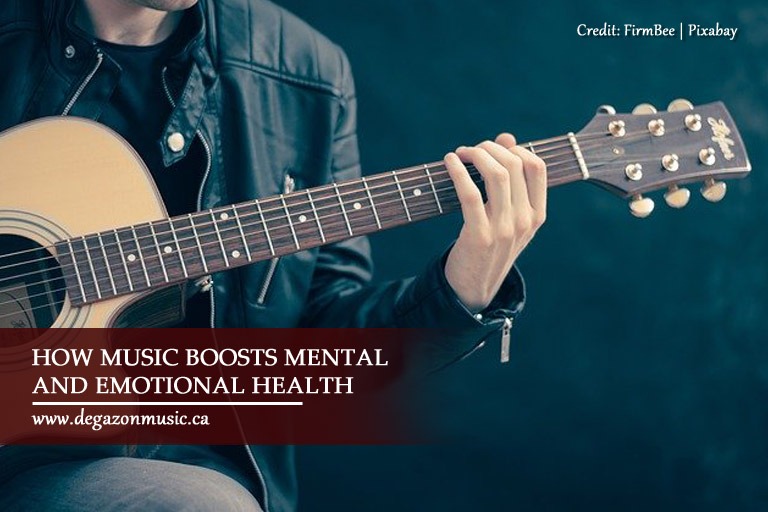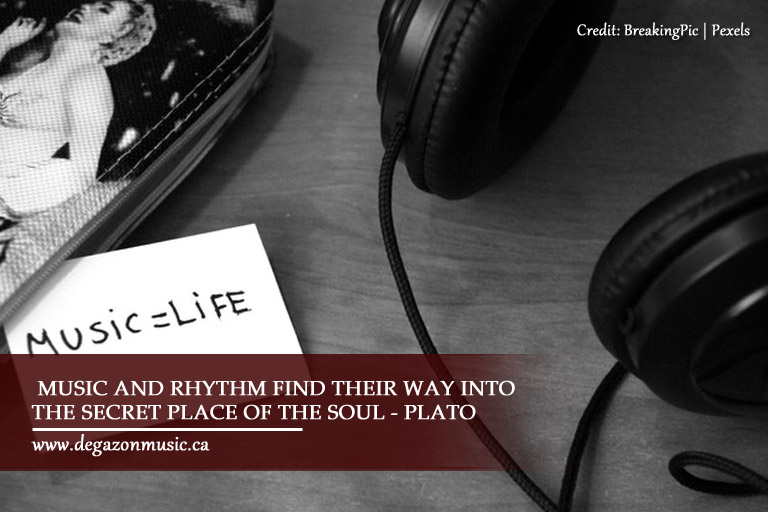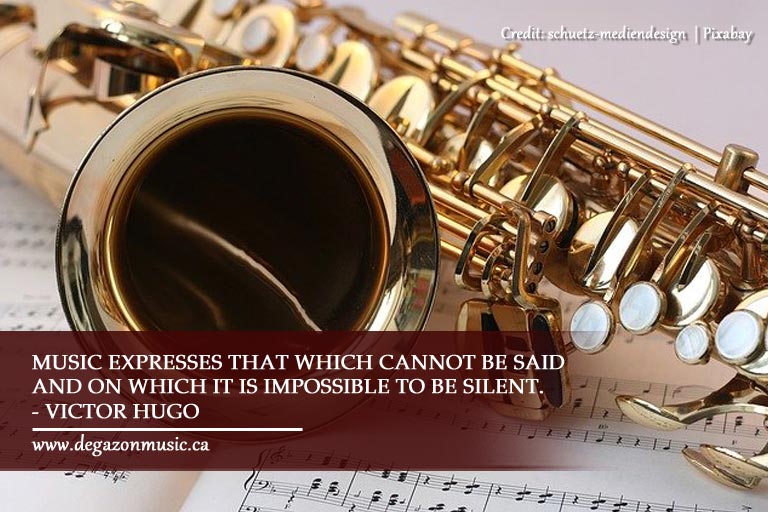How Music Boosts Mental and Emotional Health

It does not matter if you love jazz, hip hop, or heavy metal. Several studies claim that playing or listening to music can help boost your mental and emotional health. For thousands of years, we used it as a form of communication and entertainment. It allows us to express thoughts, feelings, and behaviours.
It is not only therapeutic, but the psychological benefits of music also prove to be powerful and wide-ranging as it helps relax the mind and energize the body. Hence, you can easily understand how the power of music can affect your mood and inspire action.
What Music Can Do for Mental and Emotional Health

It has been widely documented that playing, creating, and listening to music have a significant impact on your mood, as well as your mental health. By incorporating music into your everyday life, it can help you feel more relaxed and motivated and promote efficient brain processing. This section will help you understand the relationship between music and mental health and emotions, and how you can incorporate it as a strategic tool to improve your quality of life.
- Banishes Loneliness – Loneliness can inevitably happen to anyone. It can make a person feel worthless, especially without someone or something to keep them company. However, music can help create a sense of connection to the singer and emotions being expressed in the song and banishes the feelings of loneliness and isolation. According to a study cited on Medical Daily, music is a cost-efficient way to help improve mental health conditions, such as depression and anxiety, especially in children and teens.

- Promotes Relaxation – Many studies have established that music aids in managing stress and promoting relaxation. If you feel anxious or agitated, take some time to lie down on a couch and listen to classical or instrumental music. This helps slow down your pulse rate, lower blood pressure, and reduce stress hormone levels.
- Boosts Concentration – Concentration can be a problem in some people. Playing music in the background helps improve your concentration and focus on certain tasks. Since music comes in different types, it can be quite tricky to find the right music. However, many mental health professionals claimed that instrumental music is the best type of music for concentration. The next time you are working on a task, why not try playing some classical, jazz, or other instrumental music softly in the background.

- Increases Motivation – There are a lot of good reasons why music helps you become physically active. The tempo of the music can be a factor that affects your mood and heart rate. In an experiment investigating the connection between music and performance, it showed that listening to fast-paced music causes the participants to work out harder during their workout. So, the next time you hit the gym, make sure to load up a playlist filled with fast-paced tunes to increase your motivation and enjoy your workout routine even more.
- Encourages Self-Expression – Music helps you express your emotions through lyrics. You can create your own piece and write lyrics expressing your feelings and process your emotions. It is more about the expression of how you feel than how it sounds.
Using Music Lessons as Therapy

While listening to music helps improve your general sense of wellbeing, playing an instrument and creating your own music can give a more immense and deeper experience, reducing your stress level and keeping depression and anxiety at bay.
Also, enrolling in music lessons in Mississauga is a great way to promote socialization and improve self-confidence. It allows you to meet new friends and work together to create music. It also teaches discipline since everyone coordinates and collaborates together to achieve a set goal. People of all ages can find music lessons therapeutic and highly beneficial.
Here is how you can use music lessons as therapy:
- Lyric Analysis – Some people may find it hard to talk about certain topics or experiences. However, lyric analysis is an easier and lighter approach to process your emotions, thoughts, and experiences. Each of us has that special song that we relate to or feel deeply connected to. With lyric analysis, you have an opportunity to identify song lyrics and correlate them with your emotions and experiences.
- Improvisational Music Playing – Many may not realize it, but playing an instrument is a great way to express your emotions, socialize, and explore different therapeutic themes, such as happiness, grief, and conflict. For instance, your group can play drums , rain sticks, thunder tubes, and other percussive instruments to create a “storm.” Together, your group can identify the different escalation and de-escalation and the “high and low” areas of the storm in the improvisation. This enables you and the group to discuss your feelings further.
- Active Music Listening – Whether you are listening to music or singing to it, music helps improve your mood. The repetitive and rhythmic aspects of the music activates the brain’s neocortex, which calms the body and mind and minimizes impulsivity. Music has the power to match or lighten our mood. To change the state of your mood, simply play music to match your current mood and take several minutes to calm your mind.
- Songwriting – Songwriting is a good opportunity to express your feelings and thoughts in a positive and rewarding way. It allows you to write down lyrics and choose the types of musical instruments and sounds that bespeak your emotions and experiences that you want to tell and share with people. Songwriting can be extremely validating, helps you build your self-worth, and instills a sense of pride as you listen to your own creation.

Music not only has the ability to inspire and entertain but it also comes with powerful psychological effects that boost your health and general well-being. If you think that music can help you improve your quality of life, why not learn music by enrolling in music lessons. You might just find out how beneficial it can be in your life.
At DeGazon Music Studios, it is never too late to start learning how to play your favourite musical instrument or how to enhance your singing voice. We welcome new students of all ages throughout the year who are interested in learning music. We offer fun music programs and hands-on experiences to allow you to explore your creativity and abilities in a lively and encouraging environment with our experienced teachers.
Call us at (416) 527-3769 Ext. 1 to book an appointment and start your musical journey with DeGazon Music Studios. You can also use our online contact form to send us a message or questions.
Don’t wait… Right now, click 👉👉 Go.DeGazonMusic.ca to Request Info and get your FREE trial lesson today. Space is limited.

Comments ( 4 )